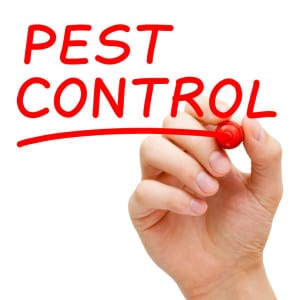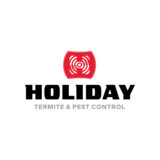Why Over-the-Counter Pest Control Products Frequently Don’t Work
Chances are if you’re reading this article, you’ve found some humor, or a lot of humor, in the headline. You’ve faced a pest control problem whether that is ants, spiders, fleas inside the house or squirrels and moles in the yard. If you’re like the average do-it-yourselfer, you went right to the store to find something to get rid of the problem. You followed the instructions, targeted the enemy … and found that your results fell far short of your expectations. You’re not alone, and many experts in the pest control industry are citing results and studies that show these over-the-counter products just are not as effective at ridding homes of problem pests.
Problem #1 – Treating the Symptoms Not the Root
If you’ve ever weeded a garden, you know that you have to dig up the weed all the way down to the root. Otherwise, it will just keep growing back. The same can be said for the way some pest control products are applied. In your anxiousness to get rid of the immediate problem (ants in the cupboards or bedrooms) you don’t take the time to understand why you’re having the problem in the first place. For example, mice need only a very small crack to find their way into your home. Yes, mousetraps are important, but it’s equally important to find where they’re coming in so you can it can be addressed. The same applies for insects. When you’re trying to control stubborn cockroaches or ants, you have to find out where the nesting and stop them from multiplying. Failure to do that will thwart your best efforts.
for the way some pest control products are applied. In your anxiousness to get rid of the immediate problem (ants in the cupboards or bedrooms) you don’t take the time to understand why you’re having the problem in the first place. For example, mice need only a very small crack to find their way into your home. Yes, mousetraps are important, but it’s equally important to find where they’re coming in so you can it can be addressed. The same applies for insects. When you’re trying to control stubborn cockroaches or ants, you have to find out where the nesting and stop them from multiplying. Failure to do that will thwart your best efforts.
Problem #2 – Harmful Chemicals
Over-the-counter pest control products can make you feel like you have control over the situation. In many cases, this leads to a “if a little is good, a lot is better” mindset. The problem is some pesticides leave a residue that can hang around your home for specific period of time. They could also trigger allergic reactions or other respiratory problems for yourself or your family members. In addition, many of these products, particularly of the liquid variety, become completely ineffective once they dry, which leads consumers to simply spray more, thus perpetuating a maddening cycle.
Problem #3 – Not Understanding the Pest
You may be familiar with the statement, nature finds a way. That is true with pests. For example when you spray an ant hill, the ants send out a distress call and begin to create separate colonies. What started as one anthill quickly becomes multiple hills, which now compounds your problem.
Industry experts say that, if you are truly committed to taking care of problem pests by yourself, then you should find pest control training and testing sites. These will teach you how to properly use products and help you understand the nature of the pests you may come across. However, many pest control services offer reasonable pricing and, like a lawn care service, can set a regular schedule to help ensure that your yard and home can be protected from unwanted pests.








1 Comment